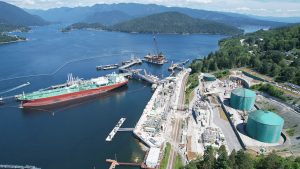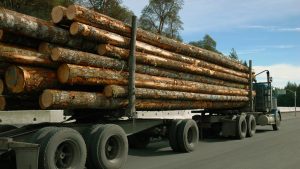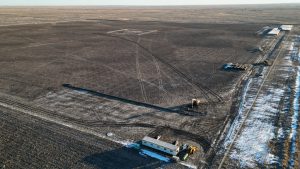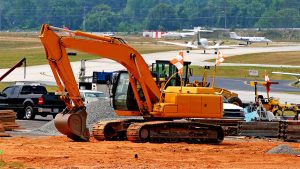Building the Trans Mountain pipeline across British Columbia and Alberta means millions of man hours for skilled trades and is essential to the country’s economy, says the chief Canadian officer of Canada’s Building Trades Unions (CBTU).
Robert Blakely praised the Alberta and federal governments for “stepping up in Canada’s national interest” and says despite the hefty $4.5 billion price tag, they shouldn’t end up losing money on the venture.
“It’s interesting that this is the first time in a long time people are paying some attention to this issue,” says Blakely, whose organization has been lobbying hard for years to underline the importance of pipeline construction.
“When we look at construction, it’s all through the provinces and in the towns and villages but the big drivers that tend to make it go are the extractive industries, the oil and gas sector, mining, forestry and agriculture. The big construction activity comes either in building infrastructure or in the secondary and tertiary phases of processing.”
The CBTU is part of a North America-wide organization that co-ordinates activities and provides resources to 15 affiliated trade unions in the construction, maintenance and fabrication industries.
In Canada, the CBTU represents 500,000 skilled trades workers in 14 international unions working in more than 60 different trades and occupations, which generate 14 per cent of Canada’s GDP.
Canada missed out to its “national shame” when the 4,600-kilometre Energy East pipeline was cancelled due to uncertainty, Blakely says.
“That pipeline would have ended Canada’s reliance on foreign oil with it being processed in Canada and also exported to Ireland where Irving had bought a refinery in Shannon,” he says.
The resource sector is critical to Canada’s GDP and the source of the nation’s wealth, he says, and no one is more sensitive to roadblocks than the skilled trades sector.
When the oil does flow to tidewater and beyond to world markets, ending Canada’s dependence on the U.S. as the sole buyer, Blakely says getting a world price per barrel is going to offset any costs associated with buying the pipeline and operating it.
Even as the projected cost of completing the 980-kilometre Trans Mountain pipeline rises beyond $7.8 billion, he says the existing pipeline is also a source of revenue.
The jobs created by the construction activity will also pump money back into the economy and generate tax revenues.
“Those are Canadian jobs there,” he says. “Not just in building the pipeline but in the pumping stations every 50 miles which account for 20 per cent of the cost and the maintenance work involving tradespeople on an ongoing basis.”
More importantly, he says, the Alberta NDP government put people over politics in stepping up.
“The Alberta government put the interest of its citizens beyond the interest of their political ideological ‘partners’ and that stance takes great conviction and strong resolute leadership,” he says.
Not only will the oil flow to markets where it will not be discounted by American refineries, jobs, apprenticeships and other activity will follow.
“It’s not just the trades, it’s all those small communities which benefit,” he says.
It’s also critical that Canada sends a strong message to the world that it is open for business, welcomes investment and will do whatever is necessary to remove any roadblocks stalling progress.
It’s important across Canada not just for the manufacturers and fabrication shops but for the trades who “come from away” to work out west because there just isn’t enough work in their own communities, he adds.
“Some 70 per cent of the workers are from away,” he says. “The general rule is that for every billion in construction cost there are between five and six million hours of work. At $10 billion, there’s 55 million hours. Divide that by 2,000 hours a year and any one person is going to be pretty busy for a long time.”
Employment in Alberta hasn’t fully recovered since the global financial crisis with some 4,000 electricians and 2,500 pipefitters still out of work.
“There is some work being done but a lot of that is about the wrap up,” he says.
There’s hope, however, that once the Kinder Morgan deal is done, following its current due diligence, they can squeeze out a shortened construction season finishing off the terminal preparation and start welding sections of pipe.
“They’ve been stacking pipe along the route but you can’t leave it out too long because it bends making it harder to weld,” he says. “We are world leaders in pipeline construction. We can build it and make it safe because we have the highest safety and environmental standards anywhere in the world.”
The head of Kinder Morgan Canada recently announced work is to resume this month to prepare a route for the Trans Mountain pipeline expansion.











Recent Comments
comments for this post are closed